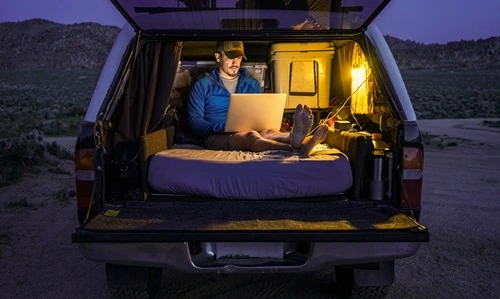No, it is not inherently illegal to live in your car in the United States, but whether it is allowed depends on local laws, parking regulations, and the circumstances. Many cities and states impose restrictions on vehicle habitation, particularly in public spaces, to address safety concerns, sanitation, and community standards.
Legal Framework for Living in Your Car
Living in a car is a complex issue governed by a mix of local ordinances, parking rules, and property laws. The legality varies based on the location, duration, and behavior of the vehicle occupant.
1. Local Ordinances
- Many cities have laws prohibiting people from sleeping or living in vehicles, especially on public streets or in residential neighborhoods. These ordinances are often part of broader efforts to manage homelessness or prevent disruptions to local communities.
- Cities like Los Angeles, San Diego, and San Francisco have specific vehicle habitation bans in certain areas but may also offer designated parking lots for overnight stays.
2. Public Land Regulations
- Sleeping in vehicles on public land, such as parks or beaches, is often restricted. For example, national parks and some state parks limit overnight stays in parking lots to designated campgrounds.
3. Private Property
- Parking on private property is typically legal if you have the owner’s permission. However, long-term parking or vehicle habitation may require compliance with local zoning laws.
Why Living in a Car May Be Illegal in Certain Areas
The restrictions on living in a car stem from various concerns:
1. Public Safety
Living in a vehicle without proper facilities for sanitation or cooking can pose risks to both the individual and the community. Laws aim to prevent fires, accidents, or unsanitary conditions.
2. Zoning and Land Use
Cities and counties regulate land use to maintain residential and commercial property values. Extended vehicle habitation may violate zoning rules that restrict residential use to specific areas.
3. Homelessness Management
Anti-camping and anti-vehicle habitation ordinances are often used to address visible homelessness. Critics argue that these laws disproportionately target vulnerable populations, while proponents emphasize their necessity for maintaining public order.
Recent Legal Developments
1. Federal Court Rulings
- In 2019, the Ninth Circuit Court ruled in Martin v. City of Boise that punishing homeless individuals for sleeping in public spaces without offering adequate shelter violates the Eighth Amendment. This decision has influenced how cities enforce laws against vehicle habitation.
2. Safe Parking Programs
- Many cities, including Los Angeles, Seattle, and Portland, have implemented safe parking programs that provide designated areas for people living in their vehicles. These programs often include access to restrooms, security, and supportive services.
3. Local Ordinance Updates
- Some cities, like San Diego, have revised their vehicle habitation laws to decriminalize the act while still regulating where and when vehicle habitation is allowed.
Alternatives for Legal Vehicle Habitation
If you need to live in your car, consider these legal options:
- Safe Parking Programs: Many cities offer designated parking lots where vehicle residents can stay overnight legally and safely.
- RV Parks or Campgrounds: RV parks and campgrounds often allow long-term stays with access to basic amenities.
- Private Property: Living in your car on private property with the owner’s permission is generally legal but may still require adherence to local zoning laws.
- Industrial Zones: Some industrial areas permit overnight parking for vehicles, depending on local regulations.
Common Penalties for Illegal Vehicle Habitation
- Fines: Violations of anti-camping or vehicle habitation laws often result in fines ranging from $50 to $1,000.
- Vehicle Towing: In some cases, authorities may tow the vehicle if it is deemed to be a public nuisance or if parking regulations are violated.
- Arrest or Citation: Persistent violations can result in citations or, in rare cases, arrest.
Related FAQs
Q1. Can I sleep in my car overnight at a Walmart?
Ans: Many Walmart stores allow overnight parking for RVs and cars, but this varies by location. Always check with store management before parking.
Q2. Is it legal to live in my car on public streets?
Ans: In most cities, sleeping or living in a car on public streets is prohibited under local ordinances.
Q3. What are safe parking programs?
Ans: Safe parking programs are city-managed or nonprofit initiatives that provide designated areas for vehicle residents to park overnight legally, often with access to restrooms and support services.
Q4. Can I live in my car in national parks?
Ans: Overnight parking is allowed in designated campgrounds within national parks but not in regular parking lots.
Q5. What should I do if I receive a citation for living in my car?
Ans: Consult a local attorney or advocacy organization for guidance. You may be able to contest the citation or seek help finding a legal alternative.


